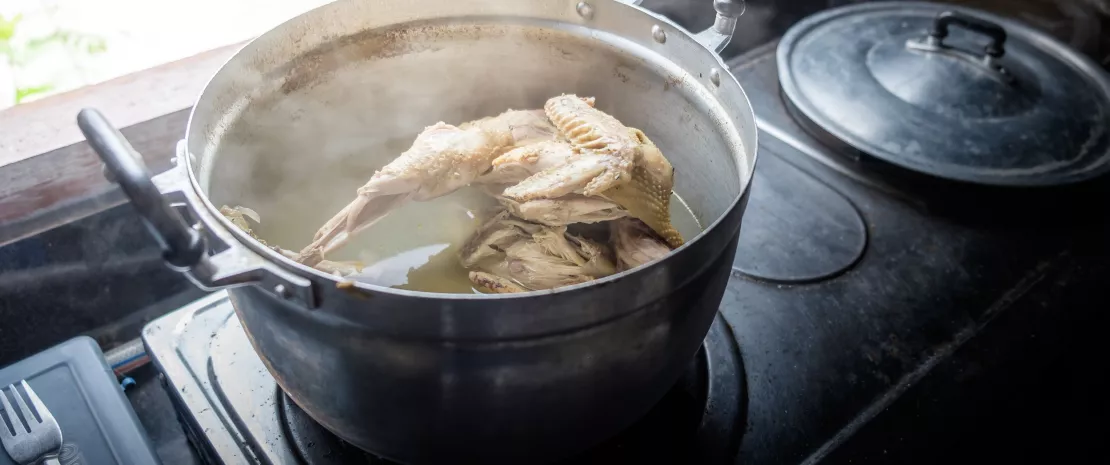Roasted, grilled or boiled food: what does your intestinal flora like best?
Roasting or grilling your food seems to be more beneficial for the gut microbiota than boiling, according to a new study that will be published in the Journal of Agriculture and Food Chemistry.
- Learn all about microbiota
- Microbiota and related conditions
- Act on your microbiota
- Publications
- About the Institute
Healthcare professionals section
Find here your dedicated section
Sources
This article is based on scientific information

About this article
Among all factors that may impact microorganisms hosted in our gastrointestinal tract, food is well ahead. Food provides bacteria and other microorganisms of the flora with the substrates they need to develop through non-digested substances that are absorbed by the intestines (such as fibers, starch, some proteins and fatty acids…). These substances are then transformed into either beneficial or harmful compounds.
Cooking = modulating
Based on the assumption that the heat level specific to each cooking technique generates different chemical components (and consequently modulates the composition of the microbiota in its own way), Spanish researchers conducted an original experiment: they used five different cooking methods (pan frying, boiling, grilling, roasting or toasting) to prepare five foodstuffs (chicken, banana, red pepper, bread and chickpeas), which they then subjected to an in vitro digestion and fermentation process mimicking the action of small intestine and colon. To assess the effects of the cooking method, they measured the amount of three substances produced during the (sidenote: Chemical reaction that occurs when sugars and proteins interact after heating a foodstuff at a temperature of 145°C or more. Furosine, furfural and hydroxymethylfurfural (HMF) are components produced during this reaction. ) . They then analyzed the microbial composition of the foodstuff and measured the production of short-chain fatty acids (SCFA). These substances are especially beneficial to our health and could protect us from obesity, metabolic syndrome or even colorectal cancer.
Different effects depending on the food
In general, intense cooking, like roasting or grilling, increase the production of short-chain fatty acids and the content of protective bacteria in the food. But this phenomenon is inverted for some foodstuff such as bread and banana, where intense cooking decreases the number of beneficial bacteria. These results show that by modifying the composition of food, cooking modulates the composition of the gut microbiota. The authors concluded that all these cooking techniques are not equal and that, in particular, their impact depends on the nature of the foodstuff.
Sources:
Pérez-Burillo S, Pastoriza S, Jiménez-Hernández N, D'Auria G, Francino MP, Rufián-Henares JA. Effect of Food Thermal Processing on the Composition of the Gut Microbiota. J Agric Food Chem. 2018 Oct 31;66(43):11500-11509











